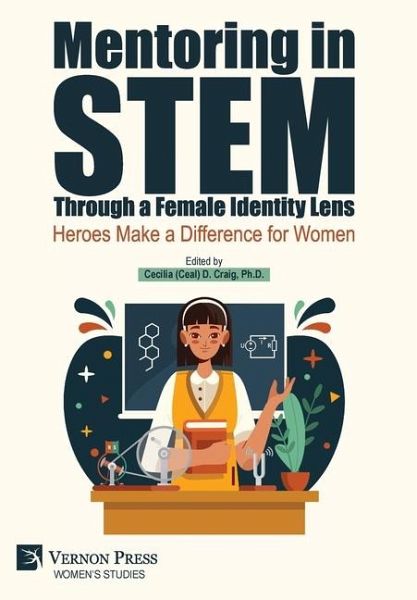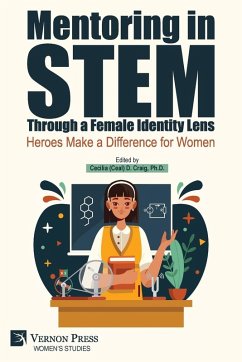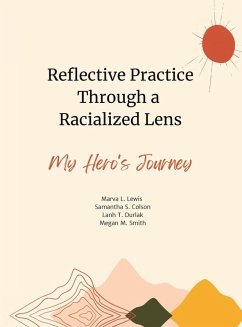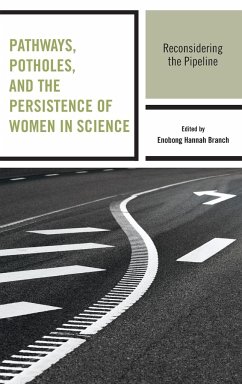
Mentoring in STEM Through a Female Identity Lens
Heroes Make a Difference for Women
Herausgeber: Craig, Cecilia (Ceal) D
Versandkostenfrei!
Versandfertig in über 4 Wochen
94,99 €
inkl. MwSt.

PAYBACK Punkte
47 °P sammeln!
With the stagnant low percentages of women in STEM careers, identifying practices to satisfy the growing need for professionals in those fields is critical to improve recruitment and retention. Supportive relationships, like mentors and sponsors, have been shown to both inspire women to pursue those careers and to help them succeed in them. This book explores how developing supportive connections helps students, faculty, and teachers see STEM professions as being a place for women to grow and succeed. Early chapters provide essential mentor characteristics and explore engineering education gen...
With the stagnant low percentages of women in STEM careers, identifying practices to satisfy the growing need for professionals in those fields is critical to improve recruitment and retention. Supportive relationships, like mentors and sponsors, have been shown to both inspire women to pursue those careers and to help them succeed in them. This book explores how developing supportive connections helps students, faculty, and teachers see STEM professions as being a place for women to grow and succeed. Early chapters provide essential mentor characteristics and explore engineering education gender inequity from a teacher's perspective of stereotypes, stereotype threat, and bias, offering culturally relevant teacher mentoring approaches to promote equitable pre-college engineering education. Middle chapters describe K-12 mentoring programs: mentorship initiatives empowering young South African Women and girls to advance to mathematical-related careers; programs, methods and activities to achieve the desired goal of making young students aspire to become scientists; and engagement year-round in grades 9-12 combined with 40 years of iterative evaluation created a finely-honed enrichment program for low-income Black women in urban public high schools. A longitudinal undergraduate mentoring program for mentoring early college students in Louisiana provides further insights in that section. The final four-chapter section describes mentoring programs for professors and teachers: reciprocal mentor relationships and role shifting within an informal peer mentoring group; differences between mentoring relationships and sponsoring relationships within academia; the impact of culturally responsive mentorship (CRM) on the development and expression of a pre-service teacher's woman of science identity; and a program that aims to recruit and retain STEM pre-service teachers and STEM teachers of color. With several longitudinal mentoring programs, several programs for women of color, this book fills a gap to help grow the numbers of women in STEM.












